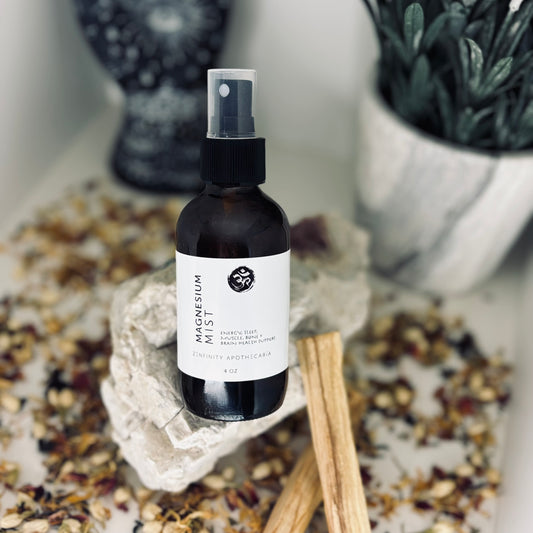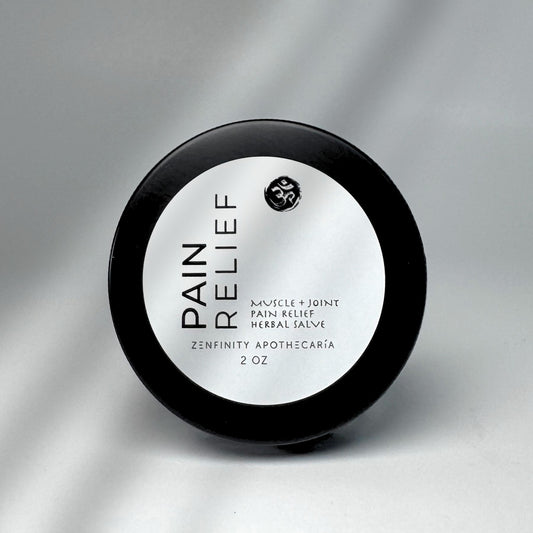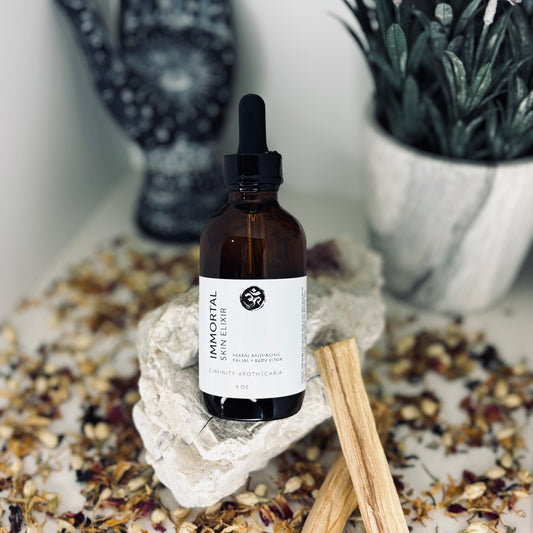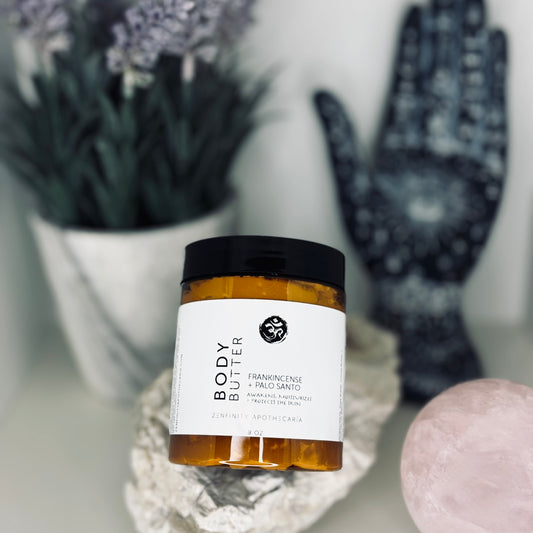Fire cider is full of health benefits from medicinal plants and herbs that are infused into raw apple cider vinegar. Fire cider ingredients come together to create powerful immune-boosting, anti-inflammatory, anti-bacterial, anti-viral, decongestant, circulation and digestion systems boosting concentrated herbal tonic. Herbalists and those who embrace natural medicine call upon this spicy, spunky, tangy herbal remedy to stay healthy. Traditional fire cider combines onion, garlic, turmeric, ginger, lemons, rosemary and raw apple cider vinegar. While these work great, we decided to supercharge this by incorporating powerful herbs. The beauty of this ancient herbal remedy is you can tailor it to your liking.
This supercharged herbal fire cider can help to open airways, ease congestion, loosen mucus, soothe sore throats, calm coughs, flush and detox your system, and generally encourage your body to resist and fight off flu and cold bugs more quickly. Just a couple of spoonfuls a day will help support your immune system and overall health throughout the year but especially during cold and flu season.
Herbal Fire Cider Recipe
- 1 large Onion (yellow or white)
- 2 Garlic bulbs
- 3-4 sprigs of Rosemary
- 1 Orange
- 2 Lemons
- 2 pieces fresh Turmeric
- 1 large piece fresh Ginger Root
- 2 - 3 Cinnamon sticks
- 1 Jalapeno
- ¼ c dried Yarrow
- ¼ c dried Wormwood
- ¼ c dried Honeysuckle
- 1 Tbsp Whole Peppercorns
- ½ c Raw Local Honey
- 32 oz Raw Unfiltered Apple Cider Vinegar
- 64 oz Glass Jar
- Wax Paper
PREP: Chop into medium size pieces onion, orange, lemons, turmeric, ginger and jalapeno. Peel garlic cloves from bulbs.
COMBINE: Place all solid ingredients in the glass jar first about ¾ full. Next place your dried herbs and honey. Add any remaining chopped ingredients if there is room. Now fill to the top with your Apple Cider Vinegar. Place a small piece of wax paper between the glass jar and metal lid and close tightly. The wax paper is needed so the acidic nature of the vinegar won’t corrode the metal lid.
INFUSE: Place at room temperature away from sunlight for 3-4 weeks. Try to gently shake the jar of fire cider well every day or so, particularly for the first several days. This will help to not only increase the steeping action, causing the beneficial properties of each ingredient to infuse into the ACV even more, but also to help prevent mold growth.
STRAIN: After a minimum of 3 to 4 weeks, it is time to strain the liquid. We use a fine mesh stainless steel strainer (or a typical strainer lined with cheesecloth would work too) poised over a large empty vessel below.
BOTTLE: Using a funnel, bottle your finished homemade fire cider! You could save and reuse the bottle from the original apple cider vinegar, use other miscellaneous bottles or jars, or store it in fun swing top bottles. Now your homemade fire cider is ready to enjoy!
STORAGE: Store finished bottles of fire cider in a refrigerator. When stored properly, fire cider can last well up to a year or longer, if you don’t drink it all by then!
USAGE: It is recommended to take 1 to 2 tablespoons of fire cider per day as a preventative measure. When you feel like you’re coming down with something, take a shot a few times per day as needed. You can also use fire cider as a zesty salad dressing, or added into other beverages. Remember to shake the bottle before pouring to ensure you’re getting all the good stuff that may have settled.
PULP: The leftover now-pickled garlic, ginger, onion, and other herb bits need not go to waste! You can add these to a salad, wrap, dip or eat as a snack on their own.

Ingredient Benefits
Onion
Onion contains allicin to support the immune system and circulation. Onion is also high in quercitin, a plant pigment often used for allergy symptom relief as it can reduce histamine response and inflammation.
Garlic
A very medicinal herb, known to support the immune system. Garlic stimulates the production of white blood cells in your body, who fight against invaders like harmful bacteria and viruses. The sulfur compounds in garlic also increase blood flow and circulation. Raw garlic is especially beneficial as it contains the highest levels of allicin, an immune-stimulating compound.
Rosemary
Studies have shown that the carnosic and rosmarinic acids in rosemary have powerful antibacterial, antiviral, and antifungal properties. Consuming rosemary regularly can potentially help lower the risk of infection and help the immune system fight any infections that do occur.
Orange
You can get about 70% of your daily recommended amount of vitamin C in one orange. Also called ascorbic acid, vitamin C does much more than boost your immune system. It also helps your body store and absorb iron. Your body needs it to heal and to form blood vessels, cartilage, muscle, and bone collagen.
Lemon
Vitamin C and antioxidants in lemon can strengthen your immune system and help your body fight infections such as the cold and flu virus. It may also help shorten the duration of an illness.
Turmeric
Research shows that turmeric can modulate the activation of T cells, B cells, macrophages, neutrophils, natural killer cells, and dendritic cells, as well as enhance the body’s antibody responses.
Ginger Root
Enzymes present in ginger reduce inflammation, are used to ease nausea and stomach aches, activate your immune system, and soothe sore throats. Ginger root, called the rhizome, contains vitamin C, magnesium and potassium. While ginger touts anti-inflammatory and antibiotic properties that can boost your immune system, it also contains antiviral and antibacterial properties that can help keep you healthy.
Cinnamon
Cinnamaldehyde, one of the main active components of cinnamon, may be beneficial against various kinds of infection. The spice has shown that it has effectively treated respiratory tract infections caused by fungi.
Jalapeno
Jalapenos are power packed with vitamin A and vitamin C and can boost the body's immunity. It also contains powerful antioxidants and properties which can increase the production of white blood cells. It can battle infections and diseases and can keep the body safe and protected.
Yarrow
Yarrow is an antiviral herb frequently recommended by herbalists for cold and flu symptoms. It is a ‘diaphoretic’ which means that it is brilliant for sweating out the virus in feverish stages and eliminating the infection more swiftly from your system.
Wormwood
Artemisinin, a compound found in wormwood, is thought to have potent anti-inflammatory effects. Research suggests that it does so by tempering the action of proteins called cytokines that help instigate inflammation. By doing so, wormwood may help ease inflammatory symptoms like pain, redness, warmth, and swelling.
Honeysuckle
Mainly regarded in traditional Chinese medicine, the Honeysuckle has long been used as a natural home remedy to treat inflammation, stomach upset, upper respiratory infections, fever and more.
Black Peppercorns
Piperine is a natural alkaloid that gives black pepper its pungent taste. It is also the main component that gives black pepper its health-boosting qualities. Piperine has been shown to help relieve nausea, headaches and poor digestion and also has anti-inflammatory properties. Still, its most significant benefit may be its ability to boost the absorption of curcumin, the powerful ingredient in turmeric.
Raw Local Honey
Honey coats and soothes sore throats. Consuming local raw honey may also reduce allergies by exposing you to local pollen. It is like a natural immunization – stimulating then reducing your reactive responses.
Raw Apple Cider Vinegar
Apple cider vinegar is full of probiotics that support gut health, which is directly correlated with whole-body wellness. Its active ingredient, acetic acid, is a known antioxidant. It can help reduce blood sugar spikes and blood pressure, has anti-carcinogenic properties, and boosts the immune systems in those who regularly consume it.
*These statements have not been evaluated by the Food and Drug Administration. This product is not intended to diagnose, treat, cure, or prevent any disease. If you have a medical condition or take medication, please consult with your doctor.





